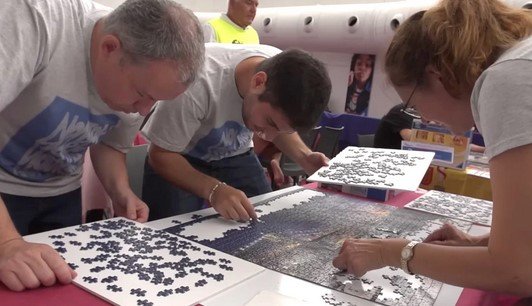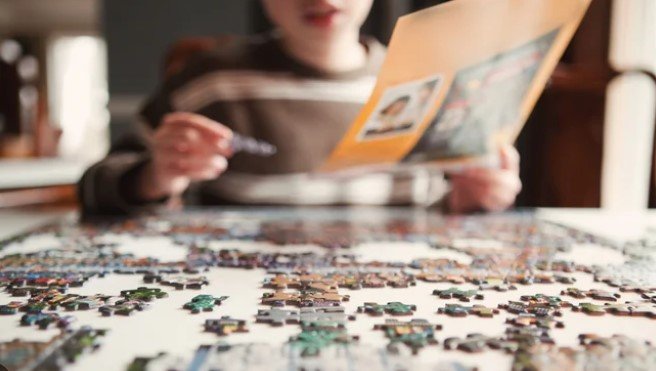Preparing for puzzle-solving competitions requires focus, strategy, and practice. Whether you’re aiming for a local event or a national championship, mastering puzzle-solving techniques can give you the edge you need. Puzzles come in various formats, such as jigsaw puzzles, Sudoku, or crossword puzzles, and each type presents its own unique challenges. This article will explore practical tips to help you prepare for puzzle-solving competitions, improve your skills, and increase your chances of success.

Understanding the Types of Puzzles
The first step in preparing for puzzle-solving competitions is to understand the different types of puzzles you might face. Puzzles vary widely, and each requires a different approach. In jigsaw puzzle competitions, for example, speed and spatial awareness are crucial. You’ll need to quickly identify patterns and piece shapes. For word puzzles like crosswords, language skills, and knowledge of vocabulary are essential. In Sudoku competitions, logical thinking and pattern recognition are key.
Familiarize yourself with the common puzzle types used in competitions. Practicing each type will help you identify your strengths and areas for improvement. It will also allow you to tailor your preparation strategy based on the specific challenges of each puzzle type. By knowing what to expect, you can approach each puzzle more confidently.
Practice Regularly to Improve Speed and Accuracy
To excel in puzzle-solving competitions, you must practice regularly. Consistent practice helps you develop faster problem-solving skills, as well as better accuracy. Whether you’re solving jigsaw puzzles, Sudoku, or crosswords, speed and accuracy go hand in hand. Start by setting a timer when solving puzzles. This will allow you to track your progress and gradually improve your speed.
For jigsaw puzzles, practice by assembling puzzles with varying degrees of difficulty. Begin with smaller puzzles and gradually work your way up to larger, more complex ones. For word puzzles, solve daily crossword puzzles or use online Sudoku tools to challenge yourself. Over time, your ability to solve puzzles more quickly and accurately will improve, giving you an advantage during competitions.
Master Puzzle-Solving Techniques
Mastering puzzle-solving techniques is essential for success in competitions. These techniques are often specific to each puzzle type, but some general strategies can help across the board. For example, in jigsaw puzzles, always start by sorting edge pieces and grouping colors and patterns. This makes it easier to assemble the pieces quickly.
In Sudoku, learning to spot patterns and use the process of elimination is key. Start with the easier numbers and build outwards. In crossword puzzles, work on filling in the blanks by starting with the shortest words or those with the most known letters. Always focus on finding connections and logical patterns that will lead you to the solution.
Another technique to master is managing time efficiently. During competitions, time limits are often strict, so it’s important to prioritize tasks and avoid getting stuck on any one section for too long. Practice pacing yourself to complete puzzles within the allotted time while maintaining high accuracy.
Stay Mentally and Physically Prepared
Puzzle-solving requires both mental and physical stamina. Mental endurance is important because puzzles can be mentally taxing, especially when you’re under pressure. To stay sharp, practice mental exercises, such as memory games, pattern recognition activities, and concentration drills. Meditation or deep breathing exercises can also help calm your mind and improve focus during long sessions.
In addition, physical preparation should not be overlooked. Although puzzle-solving is a primarily mental activity, maintaining a healthy body can improve your overall performance. Regular exercise promotes blood circulation to the brain, improving cognitive function. Make sure you get enough rest and sleep in the days leading up to the competition. Being well-rested will ensure that you stay alert and focused during the event.
Simulate Competition Conditions
As you get closer to the competition date, simulate the conditions of the event as closely as possible. Set up mock competitions by solving puzzles under time pressure, using the same rules and time limits you’ll face in the actual event. This will help you build familiarity with the format and adjust to the pressure.
You can also participate in smaller puzzle competitions or online puzzle-solving platforms to get a sense of the competitive environment. Familiarity with the competition setting will reduce nervousness and help you stay focused when it’s time to compete.
Conclusion: Ready for Success in Puzzle-Solving Competitions
In conclusion, preparing for puzzle-solving competitions requires consistent practice, mastering key techniques, and maintaining mental and physical readiness. By understanding the puzzle types, practicing regularly, and honing your skills, you can significantly improve your chances of success. Additionally, simulating competition conditions and managing time effectively will give you the confidence needed to perform under pressure. With these preparation tips, you’ll be well-equipped to face any puzzle challenge that comes your way and excel in puzzle-solving competitions.



